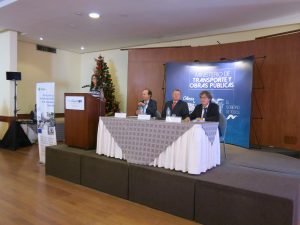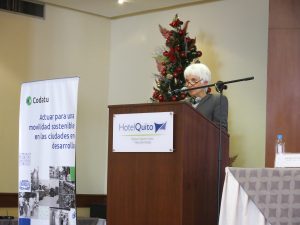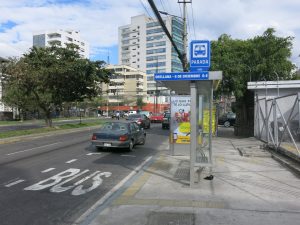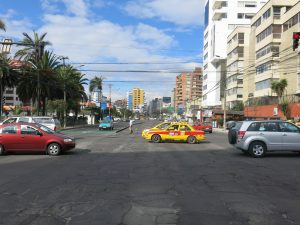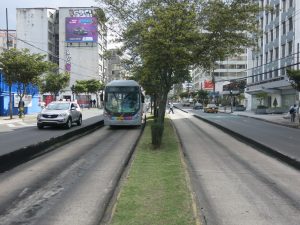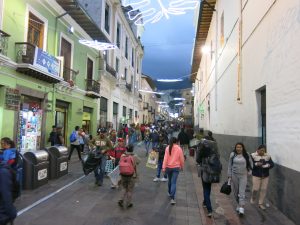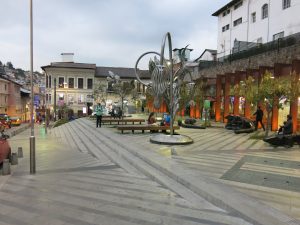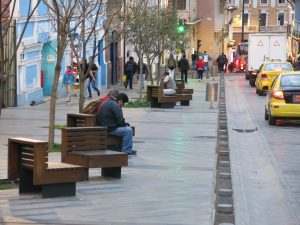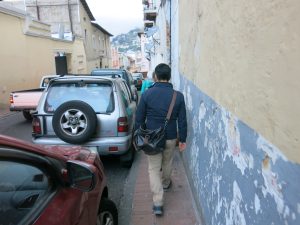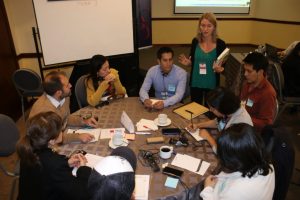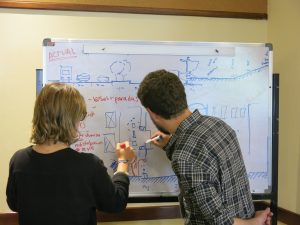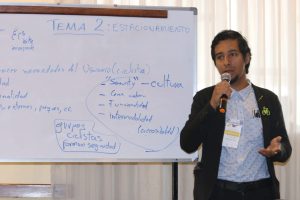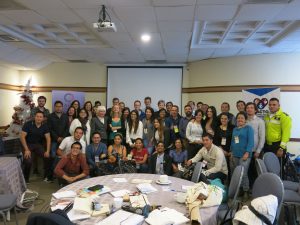“Improving cycling infrastructures in Ecuador”, 18-19 decembre 2018, Quito
On 18th and 19th December, 2018, CODATU organized a 2-day workshop in Quito (Ecuador) in order to support the Ecuadorian Ministry (MTOP) in the preparation of its “Technical Manual for cycling infrastructures”. This manual will gather all the recommendations in terms of planning, design and construction of cycle lanes at the national level, in urban as well as rural areas. The ultimate objective would be to include these technical recommendations in the current regulation, in order to incentivise the use of bicycles (72,99km of cycle lanes in 2015 in Quito), to reduce the space given to private vehicles (vehicle fleet increasing each year of 11% in Quito) and work on multimodality as well as intermodality.
The workshop was organized in two stages:
- A first day dedicated to presentations from Ecuadorian speakers from MTOP, “Metro de Quito” company, the Mobility Secretariat and the Metropolitan Institute of Urban Planning, as well as presentations of french and international case studies by Sylvie Banoun, Interdepartmental Coordinator for cycling and walking in the French Ministry (MTES) and Thomas Jouannot, expert in active modes at CEREMA.
- A second day of interactive sessions, in a more restricted format (50 persons), where participants were asked to work on:
- Recommendations to the Ministry and to the local authorities in terms of cycling infrastructures, development of parking spaces for cycles, implementation of strong communication campaings and improvment of intermodality;
- Re-desiging sections of the road in Quito to integrate or improve the cycling infrastructures – on the basis of pictures brought by the participants.
The Tecnical Manual was shared with the participants as well as the other Municipalites who could not attend the workshop, in order to gather their feedbacks and finalize the document. The next objective would be to include these recommendations in the National Urban Mobility Policy (NUMP) to be developed in 2019 as part of the EUROCLIMA+ program. A process worth watching!
Gallery
- Inauguration of the first day
- Introduction by Sylvie Banoun
- Bus stop in the city centre of Quito
- Troncal Oriental Ecovia (BRT), next to Orellana station
- Bi-articulated BRT on the Troncal Oriental Ecovia
- Pedestrian street in the historical centre of Quito
- Pacified Urban Space in the historical centre of Quito
- Pacified Urban Space in the historical centre of Quito
- The narrow streets and footpaths of the historical centre
- Participatory sessions of the 2nd day
